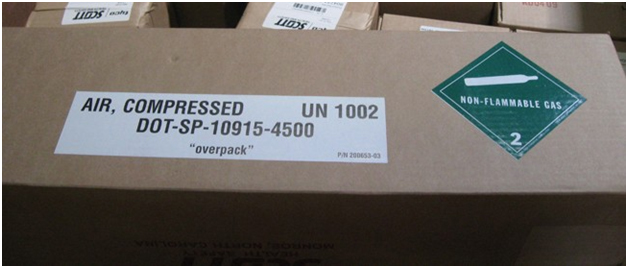Several companies that ship consumer goods may not realize that some of their products contain hazardous materials.Commonly shipped consumer goods are frequently classified as dangerous goods under the Australian Dangerous Goods Code.

Most companies only find out that they are shipping dangerous goods after visiting the NTC inspector. This is the worst way of finding out that your company is actually shipping hazardous goods.
Electronics containing lithium batteries, cleaning kits that contain alcohol, compressed air dusters, cosmetics, adhesives and paints are just some of the products which are classified as dangerous goods. While most of these products contain hazardous substances,they are often overlooked and are shipped as general freight in some cases.
Adhering to the rules of dangerous goods transportation is important so as to avoid risk, penalties and delay of your shipment. Staying compliant to these regulations requires time and effort. Companies who may not have enough experience in dealing with these goods should consider getting out side help in order to properly assess their shipping vulnerabilities.
Whether your company is small or big,the challenges brought about by hazardous goods transportation could be daunting. As a result,more companies are trying to seek a dangerous goods specialist’s advice in order to minimize the risk.
Promote safety
The simplest and most effective way of ensuring regulatory compliance is by developing a positive safety culture. A safe working environment promotes lesser accident risks and maximizes work efficiency.
Assessment
It is best to conduct a self or third-party assessment of your company’s operations and processes. This is one of the most important aspects of a positive safety culture.
Assessment could help identify safety hazards.It also provides continuous monitoring;thus, ensuring that appropriate safety level is achieved.
Define lines of safety accountability
Companies are expected to define lines of safety accountability in order to promote a positive safety culture. This includes direct accountability on the part of the senior manager and each manager in the chain of command,down to the individual employees.
Correct deficiencies
Vessel operators,airlines,trucking companies and other carriers are required by NTC to report any incident which involves the release or leakage of a hazardous material.
Once an incident is reported,the inspector shall do an investigation about the incident and target the offending company. This is especially true if the incident occurs aboard an aircraft or in a sorting facility before or after transportation of dangerous goods by air. This lessens air cargo violations every year.
Inspectors use violation history and incident data in determining which companies they should visit. Additionally, penalties are assessed based on past performances. Repeat violators are unable to mitigate the fines with corrective actions.
In order to address these issues, companies should consider hiring dangerous goods consultants and develop a strong dangerous goods training foundation. Working towards correcting regulatory deficiencies should be the goal of every company who has been out of compliance.


